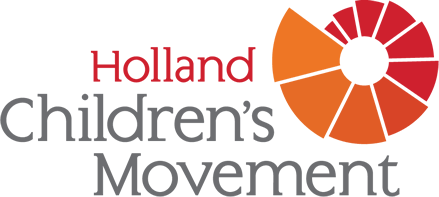-Building Nebraska’s Middle Class-
Jobs
Hard working Nebraskans are the heart of our state’s economy. If policymakers want to drive economic growth, they should focus on working families.
Wages
IN 2014, Nebraskans voted to raise the state minimum wage to $9.00. We still have work to do. Nebraska needs to raise the minimum wage for tipped workers or “persons compensated by way of gratuities”. $2.13 an hour is inadequate.
Women and Economic Opportunity
Women’s participation in the workforce is an economic driver in Nebraska. Public policies need to catch up. Policymakers need to propose and pass public policies that address the wage gap, workplace fairness and equity in general, access to paid sick leave, paid and unpaid family medical leave, and access to high-quality affordable child care.
Fairness and Benefits
Good jobs are not only defined by hourly wages or salaries. Workplace fairness and benefits play a key role for working families. Issues like fair scheduling for shift workers, access to paid sick days, and paid family leave are a key part of job quality. Nebraska needs to be proactive in encouraging quality job creation and access statewide. Training Nebraska needs to make investments and enact policy changes to help working families adjust to the future economy. Policymakers should look to strategies like apprenticeship tax credits, career technical education and banning the box. The workforce should be the priority.
Intergenerational Strategies to Build Nebraska’s Middle Class
An important part of building Nebraska’s middle class is reviewing and improving state efforts to reduce intergenerational poverty. In 2016, The Nebraska Legislature’s Intergenerational Poverty Task Force gave the state a roadmap for reducing intergenerational poverty. Policymakers should take action on the fact-based and evidence-informed ideas the task force presented. They should also reinstate the Intergenerational Poverty Task Force and continue the work.
Quality, Affordable Child Care and Early Education
All parents in Nebraska should have access to quality, affordable child care for their children.
High-quality child care should be a key component of economic development for communities small, medium, and large across Nebraska. In 2015, 77.9% of Nebraska children had all available parents in the workforce. Often, child care is the biggest part of a family’s budget, sometimes topping a mortgage or rent payment. The average annual cost for an infant in a Nebraska child care center is around $9,000 a year — more than tuition at the University of Nebraska. Finding the best care and education for children is a goal all Nebraska parents share. Economic status in and of itself should not be a determinant for what level of quality early childhood experiences a child receives. Nebraska has taken big steps in recent years to increase access to quality early childhood care and education, but we still have work to do.
Child Care Access
The Child Care Subsidy program helps low-income families who are working or furthering their education to access care and education for their children. But, is the child care subsidy program reaching enough working families in Nebraska? Is reimbursement for providers adequate and going toward quality experiences for our children? Without a doubt, the answer is no.
Child Care and Dependent Tax Credit
Policymakers need to ask if the child care and dependent tax credit is doing enough for working families.
Child Care as part of Economic Development
Communities across Nebraska should make child care access and quality a component of their economic development efforts. When a young child has all available parents in the workforce, they are going to need early care and education outside of their home. When parents make decisions about child care placement, they need information and options. For communities trying to attract and retain jobs, child care is a real factor in success.
Pre-K
Pre-kindergarten is an important stage of development for our children in Nebraska. We need to take a hard look at the availability of public pre-k throughout our state, including full day pre-k. Do working families truly have access to pre-k for their children proven to change the trajectory of later success in school and life?
Building and Improving on #NELeg Investments
Nebraska has taken strides to improve child care access and quality in recent years. Policymakers should recognize and build on successes like Sixpence, Step Up to Quality, the School Readiness Tax Credits and reducing the cliff effect in the Child Care Subsidy program. Nebraska needs to continue the focus on early investments that are a key part of our children’s and our state’s future.
Health Care
Health care cost and coverage makes or breaks the bottom line for Nebraska families.
Access and Coverage
Policymakers need to take steps to improve access to mental and physical health care for Nebraska children and families statewide. It’s long overdue. There is no reason that any child in Nebraska should be without the health care they need to thrive.
State Spending Priorities
Nebraskans want lawmakers to focus on the real issues that affect our daily lives.
Taxes and Revenue
Taxes and revenue decisions made in the Unicameral affect local communities and household budgets. Lawmakers should prioritize working families and children when setting budget priorities. Nebraskans do not want major revenue cuts that threaten our public schools, our infrastructure, our safety nets, and our most vulnerable.

